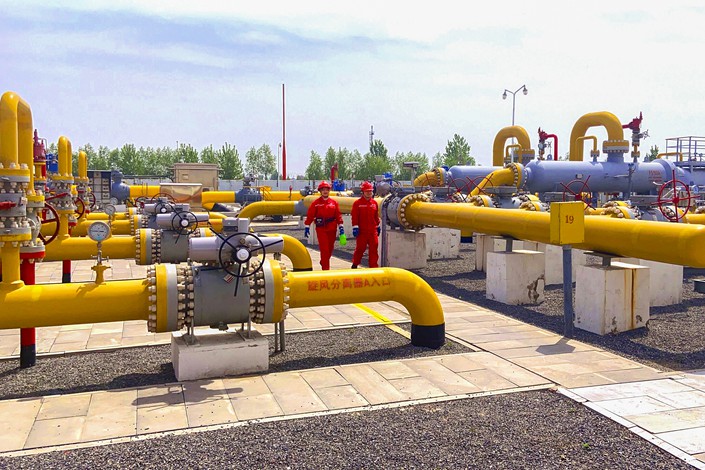CME Exchange to Allow Negative Prices on Energy Futures Contracts

The CME commodities exchange announced it will allow futures contracts for certain energy products to be traded at negative prices effective May 17, at a time when Chinese banks have stopped offering new contracts in certain commodities in the wake of the oil contract crisis at the Bank of China.
The new rule, announced by the exchange on Thursday, applies to 18 natural gas futures contracts and begun a test run on Monday. Some other energy futures, including those of jet fuel, gasoline and heating oil, are also among the list to be eligible for negative pricing starting May 17, according to a notice by the CME Group Inc.
The CME’s trading rule adjustment comes as lockdowns to curb the spread of the coronavirus pandemic have sharply cut household and business travel as well as factory operations, slashing demand for energy products.
The price for the May futures contract for West Texas Intermediate (WTI) — the U.S. oil price benchmark — fell below zero for the first time in history on April 20, dropping to as low as minus $37.63 per barrel, as investors paid other traders to take the contracts off their hands because of lack of storage options for the oil. The unprecedented collapse left Bank of China, which sold WTI oil futures as an investment product for domestic retail investors, with a loss of nearly $1.4 billion on that day.
Since then, Chinese banks have become much more cautious in selling investment products based on commodities. Industrial and Commercial Bank of China Ltd. and China Minsheng Bank Corp. Ltd., the only two Chinese banks who engage in overseas gas futures trading, have both halted sales of new contracts since April 28, according to bank announcements.
There is a possibility that gas futures prices will turn negative in the future, said Yan Jiantao, vice president of energy information provider OilChem China, given natural gas spot prices at Henry Hub — a key delivery point for natural gas — have been hovering between $1 to $2 per 1 million BTU since February.
The storage problems that caused the collapse of WTI prices in April could also affect natural gas contracts. “Natural gas takes up more space to store than the same quantity of liquefied natural gas,” said Yan. “And it can’t be shipped without a pipeline,” he noted.
Still, Yang An, chemical energy manager at Haitong Futures Co, Ltd., thinks the chance that natural gas prices will turn negative remains relatively small, since the majority of participants in the gas market are industrial investors.
As of the week ended May 1, the U.S. has added 109 billion cubic feet of gas storage, up 52.3% compared to a year earlier, data from the Energy Information Administration shows.
Contact reporter Lu Yutong (yutonglu@caixin.com)

- MOST POPULAR





